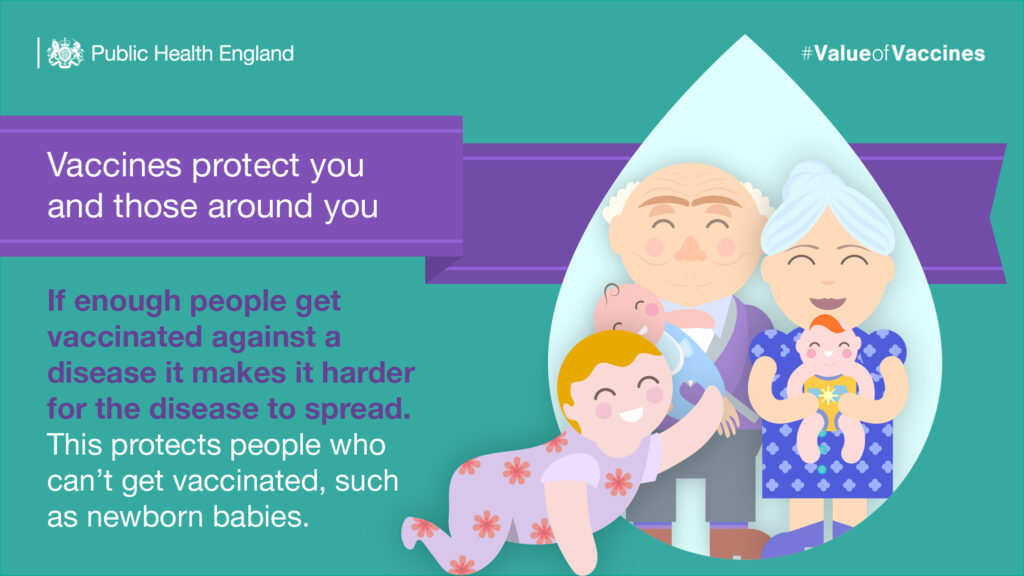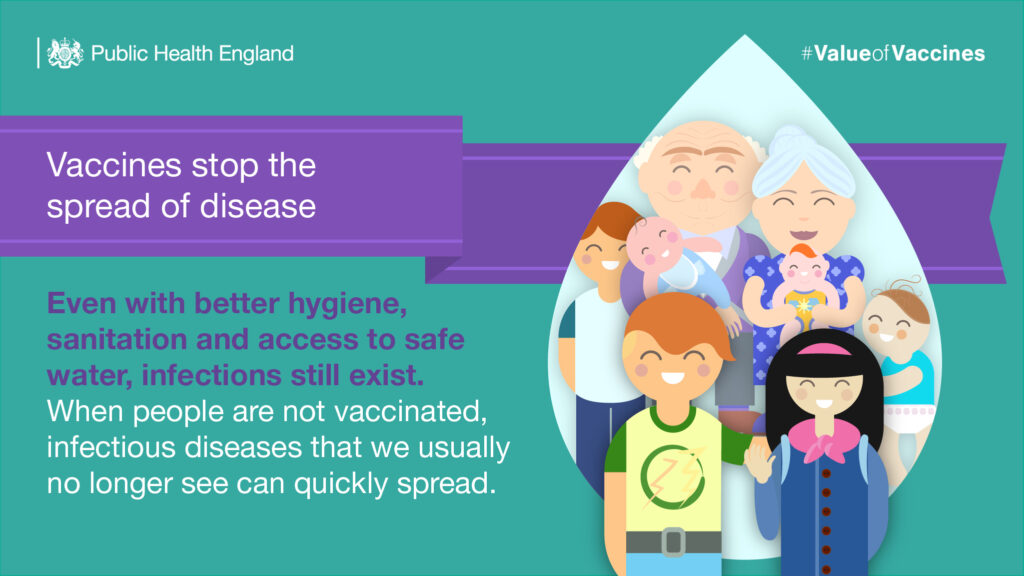
England is a world leader in childhood vaccinations, with one of the most comprehensive programmes in the world. PHE data show that, although coverage remains high, children’s vaccine uptake has been slowly decreasing since 2012-13. This means that some children have missed out and may remain vulnerable to serious or even fatal infections that are vaccine-preventable.
Despite media speculation that anti-vaccine groups and social media messaging may be damaging the immunisation programme, there is currently no evidence of a major impact on parental confidence in England.
Parental confidence in the national immunisation programme is at an all-time high and our work shows that parents trust the information they get on vaccination from their healthcare professionals over and above any other channel. Some major reasons for the decline in coverage are therefore related to how people can best access and use local services.
Last year, a report by the Royal Society of Public Health undertook a survey to identify barriers to vaccination across the life course. The report stated that accessibility and convenience of vaccination services can be important determinants of vaccine uptake and this may be particularly true for parents who are not explicitly anti-vaccination, but perhaps are more questioning, as reassurance from a healthcare professional (usually a nurse) is the most effective way of encouraging them to vaccinate.
Based on that survey, the most common barriers to getting vaccinated were:
- timing of appointments (49%)
- availability of appointments (46%)
- childcare duties (29%)
Healthcare workers who work in GP surgeries also acknowledged that parents, especially those in work, struggle with busy schedules.
In this blog, Dr George Kassianos, National Immunisation Lead at the Royal College of General Practitioners, gives his top ten suggestions for overcoming these barriers and increasing vaccine uptake in general practices.

1. Send invites and reminders
Ensure that everyone is invited for their vaccination in good time, and that those who do not attend when they are due get a reminder. This may mean ensuring that your IT system is configured correctly for call/recall or checking local arrangements with your Child Health Records Department.
Evidence shows that call/recall is the single most effective intervention to increase vaccine uptake. If you have a high rate of non-attendance for vaccine appointments, you could consider using text message reminders (e.g. iPlato), and including information about the cost of missed appointments, as this can significantly reduce the rate of non-attendance.
2. Check children are up to date
When children and young adults (particularly those up to the age of 25 years) visit the GP practice, receptionists can use this opportunity to check whether they’re up to date and offer them an appointment for any missing vaccinations. Sounds simple, but making sure everyone is doing their bit to check status can really make the different in getting coverage rates high.
3. Check your IT system flags when people have missed out
Check with your IT supplier that your system is configured correctly to flag patients with outstanding vaccinations. For those using EMIS, videos on how to do this for shingles are available here. Similar advice for TPP/SystmOne practices will be available shortly.
4. Record vaccinations with the appropriate codes
Vaccinations that are not recorded using the appropriate Read 2, CTV 3 or SNOMED codes aren’t counted in uptake figures and may make your practice coverage seem lower than it actually is. This is particularly important when patients move from abroad. PHE is shortly releasing an online tool to support the coding of vaccines given abroad.
5. Plan sufficient appointments
Assess your practice register to make sure you have sufficient appointments slots to vaccinate everyone. If you are aware of insufficient capacity or you have waiting lists for vaccination at your practice, seek support from your local clinical commissioning group. Evidence suggests that practices with more clinic slots have higher coverage.
6. Speak confidently about vaccines
Keep up to date with the latest information about vaccines and vaccination so you and your staff feel confident when answering questions from patients. This can be done by subscribing to vaccine update and by regularly checking the PHE immunisation page.

7. Provide leaflets and posters
Evidence suggests that NHS and PHE leaflets and posters are among the most trusted sources of information among parents of young children. These can be ordered free of charge for your waiting room so your patients get the right facts about vaccination. Both paper and digital copies (that can be used on your practice website or waiting room TV screen) are available. Some of the material is also available in multiple languages.
8. Create a call-back system
Create a system where a nurse or doctor can phone back and discuss vaccination with parents or patients who are unsure. A strong recommendation from a healthcare worker is effective at encouraging people to get vaccinated. Consider offering your reception staff training so they understand the importance of vaccination and can encourage people to attend too.
9. Signpost people to online resources
There are several online resources to signpost people to if they want to read more about vaccination, including the NHS.UK vaccination page and the Oxford Vaccine Knowledge project. You can also make these sites available to people on your practice website.
10. Offer additional and more flexible appointments
Consider offering more convenient clinic times for people - such as evenings and weekends -for vaccination appointments. The RSPH report found that those GPs who offered more flexible appointments seemed to feel this was effective in overcoming the barrier for most people.
As the most trusted source of advice on immunisations, healthcare professionals are on the frontline in reaching those not yet vaccinated, but we all have a role to play. We must all speak confidently about the value of vaccines and leave the public in no doubt that they are safe and save lives.
By working together with the whole practice team you can help to engage people in your area – including those in under-served groups – and ensure that they are protected against potentially serious diseases.
Get more information on childhood vaccination from our blog and read more about PHE's Value of Vaccines campaign here.
